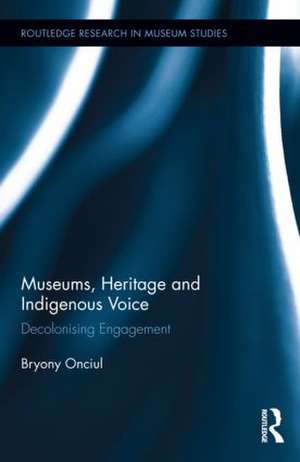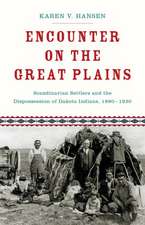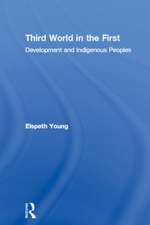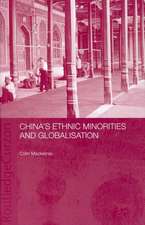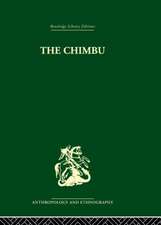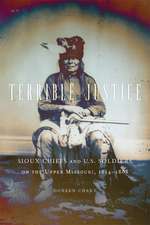Museums, Heritage and Indigenous Voice: Decolonizing Engagement: Routledge Research in Museum Studies
Autor Bryony Onciulen Limba Engleză Hardback – 14 iul 2015
Focusing on the experiences of museum professionals and Blackfoot Elders who have worked with a number of museums and heritage sites, Indigenous Voices in Cultural Institutions unpicks the power and politics of engagement on a micro level and how it can be applied more broadly, by exposing the limits and challenges of cross-cultural engagement and community self-representation. The result is a volume that provides readers with an in-depth understanding of the nuances of self-representation and decolonization.
| Toate formatele și edițiile | Preț | Express |
|---|---|---|
| Paperback (1) | 237.69 lei 6-8 săpt. | |
| Taylor & Francis – 15 dec 2017 | 237.69 lei 6-8 săpt. | |
| Hardback (1) | 840.98 lei 6-8 săpt. | |
| Taylor & Francis – 14 iul 2015 | 840.98 lei 6-8 săpt. |
Din seria Routledge Research in Museum Studies
- 14%
 Preț: 758.34 lei
Preț: 758.34 lei - 26%
 Preț: 756.50 lei
Preț: 756.50 lei - 26%
 Preț: 758.07 lei
Preț: 758.07 lei - 14%
 Preț: 294.21 lei
Preț: 294.21 lei - 26%
 Preț: 761.15 lei
Preț: 761.15 lei - 13%
 Preț: 335.19 lei
Preț: 335.19 lei - 23%
 Preț: 317.79 lei
Preț: 317.79 lei - 26%
 Preț: 757.04 lei
Preț: 757.04 lei - 26%
 Preț: 757.04 lei
Preț: 757.04 lei - 18%
 Preț: 255.07 lei
Preț: 255.07 lei - 17%
 Preț: 257.54 lei
Preț: 257.54 lei - 26%
 Preț: 757.04 lei
Preț: 757.04 lei - 26%
 Preț: 844.54 lei
Preț: 844.54 lei - 26%
 Preț: 757.04 lei
Preț: 757.04 lei - 26%
 Preț: 813.83 lei
Preț: 813.83 lei - 26%
 Preț: 757.04 lei
Preț: 757.04 lei - 17%
 Preț: 257.54 lei
Preț: 257.54 lei - 17%
 Preț: 257.54 lei
Preț: 257.54 lei - 23%
 Preț: 321.56 lei
Preț: 321.56 lei - 17%
 Preț: 256.87 lei
Preț: 256.87 lei - 18%
 Preț: 253.89 lei
Preț: 253.89 lei - 17%
 Preț: 238.88 lei
Preț: 238.88 lei - 27%
 Preț: 753.40 lei
Preț: 753.40 lei - 18%
 Preț: 255.09 lei
Preț: 255.09 lei - 26%
 Preț: 759.87 lei
Preț: 759.87 lei - 26%
 Preț: 756.30 lei
Preț: 756.30 lei - 26%
 Preț: 757.28 lei
Preț: 757.28 lei - 26%
 Preț: 757.04 lei
Preț: 757.04 lei - 26%
 Preț: 818.58 lei
Preț: 818.58 lei - 26%
 Preț: 757.28 lei
Preț: 757.28 lei - 26%
 Preț: 844.39 lei
Preț: 844.39 lei - 26%
 Preț: 815.05 lei
Preț: 815.05 lei - 26%
 Preț: 758.76 lei
Preț: 758.76 lei - 26%
 Preț: 759.37 lei
Preț: 759.37 lei - 23%
 Preț: 319.46 lei
Preț: 319.46 lei - 26%
 Preț: 759.06 lei
Preț: 759.06 lei
Preț: 840.98 lei
Preț vechi: 1141.16 lei
-26% Nou
Puncte Express: 1261
Preț estimativ în valută:
160.100€ • 175.49$ • 135.38£
160.100€ • 175.49$ • 135.38£
Carte tipărită la comandă
Livrare economică 17-31 decembrie
Preluare comenzi: 021 569.72.76
Specificații
ISBN-13: 9781138781115
ISBN-10: 1138781118
Pagini: 282
Ilustrații: 6 black & white illustrations, 1 black & white tables, 34 black & white halftones, 3 black & white line drawings
Dimensiuni: 152 x 229 x 20 mm
Greutate: 0.52 kg
Ediția:1
Editura: Taylor & Francis
Colecția Routledge
Seria Routledge Research in Museum Studies
Locul publicării:Oxford, United Kingdom
ISBN-10: 1138781118
Pagini: 282
Ilustrații: 6 black & white illustrations, 1 black & white tables, 34 black & white halftones, 3 black & white line drawings
Dimensiuni: 152 x 229 x 20 mm
Greutate: 0.52 kg
Ediția:1
Editura: Taylor & Francis
Colecția Routledge
Seria Routledge Research in Museum Studies
Locul publicării:Oxford, United Kingdom
Public țintă
Postgraduate, Professional, and UndergraduateCuprins
List of figures Foreword Narcisse Blood, Kainai Blackfoot Elder Acknowledgements Participants Introduction 1. Authorizing History 2. The Blackfoot and Museums 3. Engagement Zones 4. Institutionalizing Relations 5. Decolonizing Representation 6. Community on Display 7. The Costs and Consequences of Engagement 8. Where To Go From Here: Conclusions Notes References Index
Recenzii
"This is an important and very useful book for museum professionals and academics who are concerned with issues of community outreach and consultation. It will also appeal to communities and their representatives who are about to engage with museums in policy and exhibitions development." – Laurajane Smith, Australian National University
"At last, a book that goes beyond hopeful assertions about the value of community engagement, and really delves into the nitty-gritty of collaboration and representation, revealing the advantages – but also the challenges and risks – of working alongside, with, and for indigenous people." – Conal McCarthy, Victoria University, New Zealand
"At last, a book that goes beyond hopeful assertions about the value of community engagement, and really delves into the nitty-gritty of collaboration and representation, revealing the advantages – but also the challenges and risks – of working alongside, with, and for indigenous people." – Conal McCarthy, Victoria University, New Zealand
Descriere
Current discourse on Indigenous engagement in museum studies is often dominated by curatorial and academic perspectives, in which community voice, viewpoints, and reflections on their collaborations can be under-represented. This book provides a unique look at Indigenous perspectives on museum community engagement and the process of self-representation, specifically how the First Nations Elders of the Blackfoot Confederacy have worked with museums and heritage sites in Alberta, Canada, to represent their own culture and history. Situated in a post-colonial context, the case-study sites are places of contention, a politicized environment that highlights commonly hidden issues and naturalized inequalities built into current approaches to community engagement. Data from participant observation, archives, and in-depth interviewing with participants brings Blackfoot community voice into the text and provides an alternative understanding of self and cross-cultural representation.
